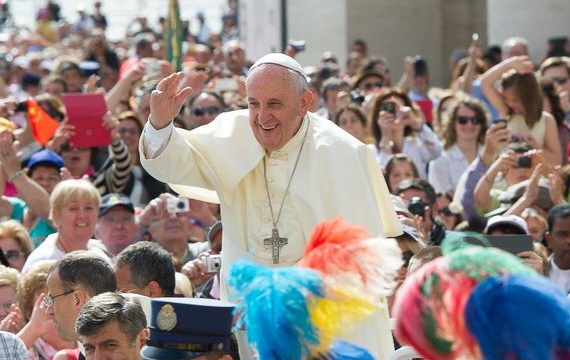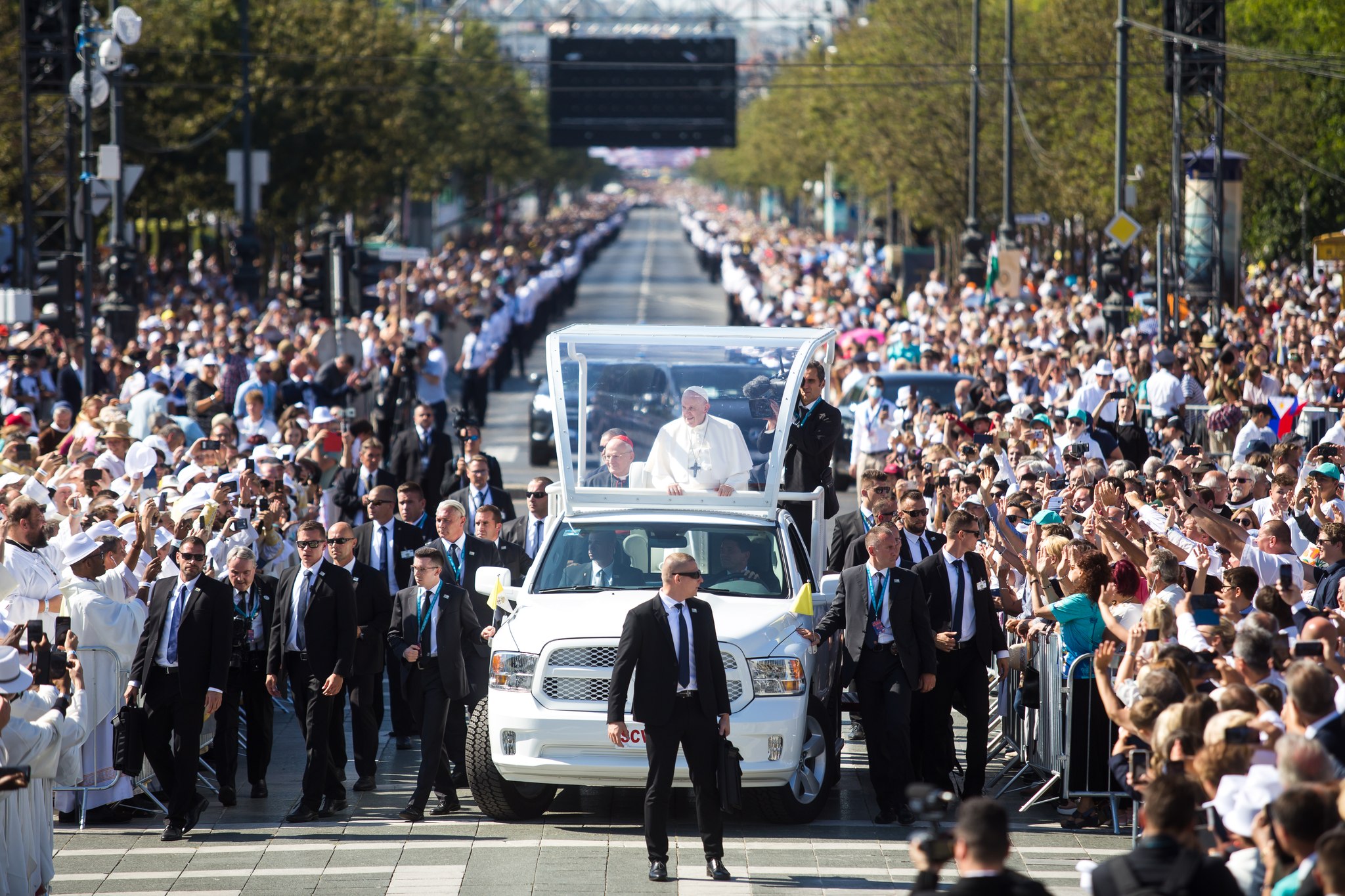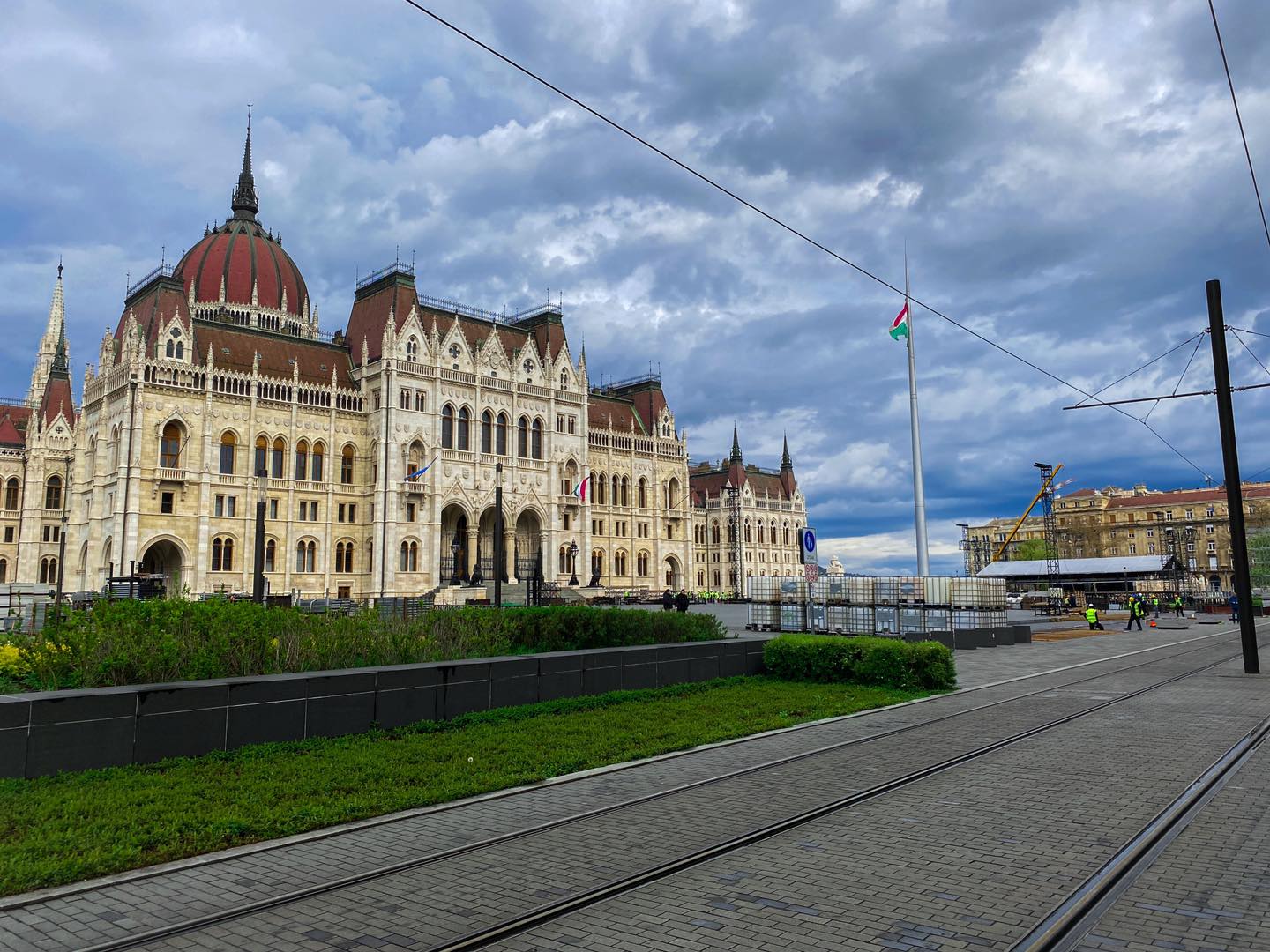
The Head of the Catholic Church will visit Hungary at the end of April.Continue reading

In less than a week, Pope Francis will arrive in Hungary, where he will be in Budapest from April 28-30. Preparations are already well underway, with church communities spiritually anticipating the Pope’s arrival, and they said they expect the meeting to be mainly about spiritual renewal.
The secretary of the Hungarian Catholic Bishops’ Conference told public television M1 channel that they have already begun spiritual preparations for the arrival of the Holy Father. Tamás Tóth said “I believe that we must wait for the Holy Father with an open heart, for the message he will bring us, and we must pray that he will strengthen us in our faith and our vision of the future, because it is very important to look to the future with confidence and faith.”
Hungarians are also preparing for the arrival of Pope Francis in Nyíregyháza, in eastern Hungary. The county bishop of Debrecen-Nyíregyháza will host the big youth meeting at Papp László Budapest Sports Arena with the head of the Catholic Church. From Debrecen and Nyíregyháza, 560 young people are traveling to Budapest for the Holy Father’s program, from which they expect mostly spiritual renewal.
Ferenc Palánki, Bishop of Debrecen-Nyíregyháza, told M1:
We hope that this meeting, this visit, will renew our spiritual life, so we are trying to prepare our souls. We pray every day, in every mass, for this intention, and we read the Holy Father’s messages so far.”
It is already known where the Pope will stay during his visit in Hungary. Pope Francis will be staying at the Vatican Embassy in Budapest, at the Holy See’s property in the 12th district. The head of the Catholic Church will spend two nights in a separate suite, with his security provided by the Swiss Guard and the Vatican Secret Service. The Hungarian police will also close off the side streets of the area, and residents will be allowed to enter only with special permission and after checks.
Pope Francis’ apostolic journey to Hungary is an opportunity to show the world our diverse, thousand-year-old Christian culture, said Lőrinc Nacsa, deputy leader of governing party Christian Democratic People’s Party (KDNP) and president of the Youth Christian Democratic Alliance (IKSZ), at an event organized by the IKSZ. Lőrinc Nacsa spoke to Tamás Tóth, secretary of the Hungarian Catholic Bishops’ Conference and Vatican expert Márk Aurél Érszegi, about the papal visit.
The Christian Democrat politician stressed that
Pope Francis will meet with a wider range of Catholic communities during his visit, giving him a more accurate picture of the diversity of the Hungarian Catholic community than in 2021, when he presented the closing Mass of the International Eucharistic Congress in Heroes’ Square.
The communities are also expected to receive encouragement from the Catholic head of church, he added.
Érszegi highlighted Pope Francis’ visit to Pázmány Péter Catholic University, indicating that the head of the Church does not usually visit universities, which is a special feature of the trip to Hungary.

Preparations are already underway at Kossuth Square in front of the Parliament where Pope Francis will hold a mass on April 30. Photo: Facebook/Zsolt Nyitrai
When meeting heads of state, it is customary for the country’s leaders to introduce their families to the Holy Father, he added. He said that the exchange of gifts is part of the protocol, and that gifts are always both a form of self-representation and a message. During his visit in 2021, the Pope received a copy of the Pray Codex as a gift from Prime Minister Viktor Orbán.
Lőrinc Nacsa said that the Pope’s visit would not avoid the war, as Pope Francis would meet a Ukrainian refugee family and the staff of Catholic charities who help refugees on the Ukrainian-Hungarian border and in Transcarpathia.
Tamás Tóth said the Holy See was “coherent on this issue,” with 20th century popes always advocating peace in conflict situations. Pope Francis, who represents all the world’s Catholics, takes it particularly to heart when Christian countries are at war with each other, and calls again and again for peace, even if it means taking on conflict.
Érszegi emphasized that
Pope Francis and the Hungarian way of thinking about European integration is similar, as the head of the Church has repeatedly stressed that he prefers a model of European integration that respects the diversity and traditions of the member states, rather than a homogenizing model that eliminates the differences between member states.
It is also close to the Hungarian way of thinking that Pope Francis speaks primarily in relation to third world countries about the fact that large Western aid organizations and countries make the provision of development and humanitarian aid conditional on certain conditions, which are typically incompatible with the teachings of the Catholic Church. Pope Francis calls this ideological colonialism, the expert noted.
Featured photo via Facebook/Zoltán Kovács